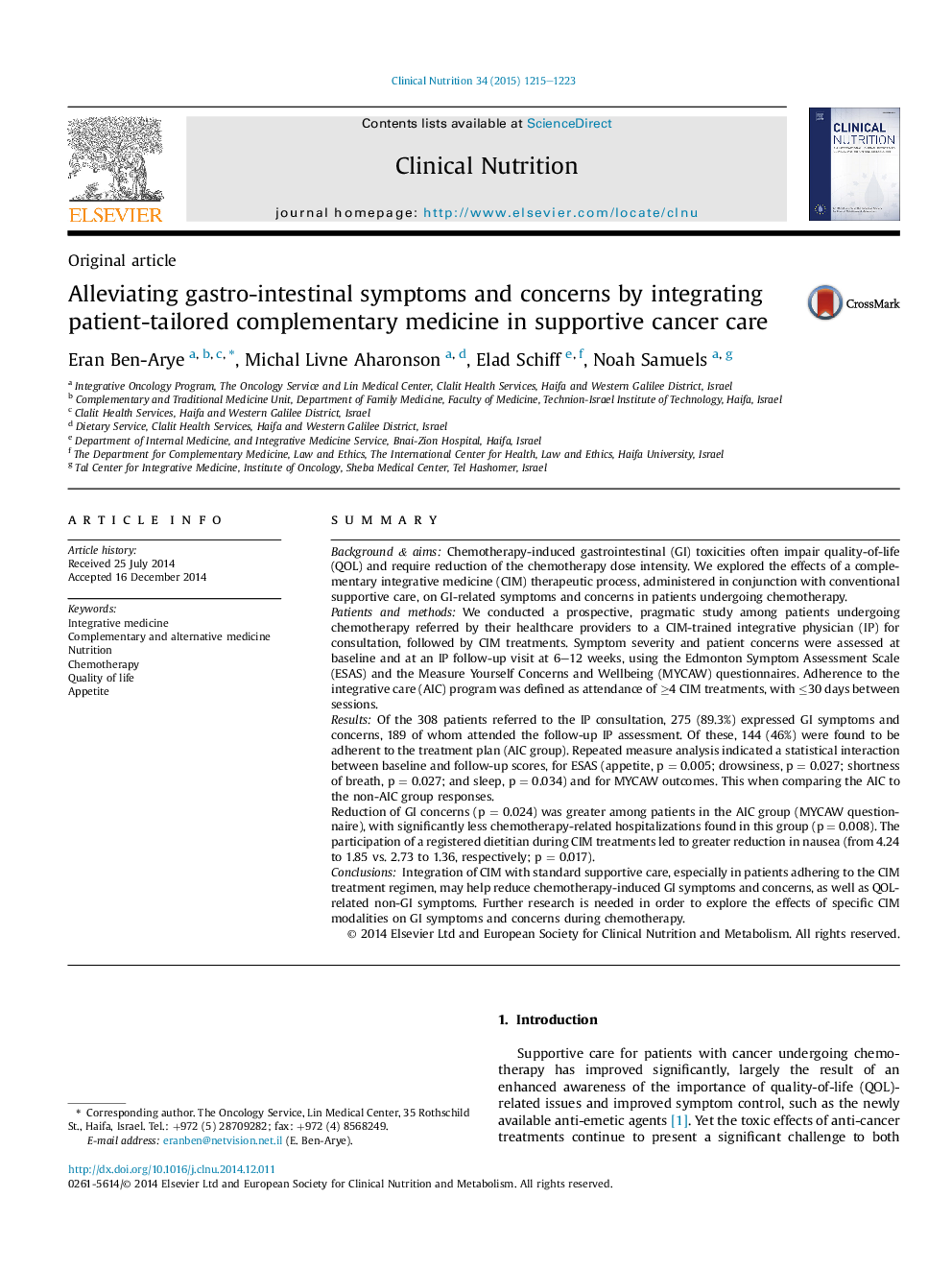| کد مقاله | کد نشریه | سال انتشار | مقاله انگلیسی | نسخه تمام متن |
|---|---|---|---|---|
| 2689340 | 1143199 | 2015 | 9 صفحه PDF | دانلود رایگان |
• Complementary integrative medicine (CIM) may improve appetite during chemotherapy.
• CIM care requires collaboration between dietitians and integrative physician.
• CIM treatments reduce chemotherapy-induced gastro-intestinal concerns.
SummaryBackground & aimsChemotherapy-induced gastrointestinal (GI) toxicities often impair quality-of-life (QOL) and require reduction of the chemotherapy dose intensity. We explored the effects of a complementary integrative medicine (CIM) therapeutic process, administered in conjunction with conventional supportive care, on GI-related symptoms and concerns in patients undergoing chemotherapy.Patients and methodsWe conducted a prospective, pragmatic study among patients undergoing chemotherapy referred by their healthcare providers to a CIM-trained integrative physician (IP) for consultation, followed by CIM treatments. Symptom severity and patient concerns were assessed at baseline and at an IP follow-up visit at 6–12 weeks, using the Edmonton Symptom Assessment Scale (ESAS) and the Measure Yourself Concerns and Wellbeing (MYCAW) questionnaires. Adherence to the integrative care (AIC) program was defined as attendance of ≥4 CIM treatments, with ≤30 days between sessions.ResultsOf the 308 patients referred to the IP consultation, 275 (89.3%) expressed GI symptoms and concerns, 189 of whom attended the follow-up IP assessment. Of these, 144 (46%) were found to be adherent to the treatment plan (AIC group). Repeated measure analysis indicated a statistical interaction between baseline and follow-up scores, for ESAS (appetite, p = 0.005; drowsiness, p = 0.027; shortness of breath, p = 0.027; and sleep, p = 0.034) and for MYCAW outcomes. This when comparing the AIC to the non-AIC group responses.Reduction of GI concerns (p = 0.024) was greater among patients in the AIC group (MYCAW questionnaire), with significantly less chemotherapy-related hospitalizations found in this group (p = 0.008). The participation of a registered dietitian during CIM treatments led to greater reduction in nausea (from 4.24 to 1.85 vs. 2.73 to 1.36, respectively; p = 0.017).ConclusionsIntegration of CIM with standard supportive care, especially in patients adhering to the CIM treatment regimen, may help reduce chemotherapy-induced GI symptoms and concerns, as well as QOL-related non-GI symptoms. Further research is needed in order to explore the effects of specific CIM modalities on GI symptoms and concerns during chemotherapy.
Journal: Clinical Nutrition - Volume 34, Issue 6, December 2015, Pages 1215–1223
